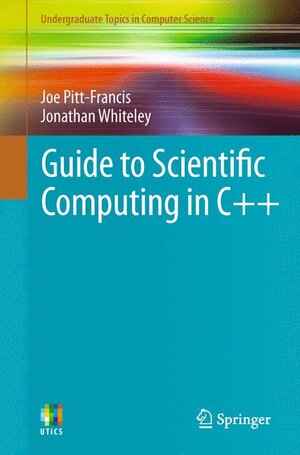- Guide to Scientific Computing in C++ (978-3-319-73131-5) - Einband - flex.(Paperback)

From the reviews:
“This book is intended for experts – mathematicians or other scientists who are familiar with the concept of programming in a high-level language and experienced in programming in languages like Fortran or MathLab. The book contains an almost full description of C++ capabilities listing the basic distinctive features of programming in it. It can serve as a fine manual for quick introduction to the subtleties of C++. … Finally a plenty of useful examples and exercises with solutions is presented.” (Nail Zamov, Zentralblatt MATH, Vol. 1246, 2012)
This easy-to-read textbook/reference presents an essential guide to object-oriented C++ programming for scientific computing. With a practical focus on learning by example, the theory is supported by numerous exercises.
Features: provides a specific focus on the application of C++ to scientific computing, including parallel computing using MPI; stresses the importance of a clear programming style to minimize the introduction of errors into code; presents a practical introduction to procedural programming in C++, covering variables, flow of control, input and output, pointers, functions, and reference variables; exhibits the efficacy of classes, highlighting the main features of object-orientation; examines more advanced C++ features, such as templates and exceptions; supplies useful tips and examples throughout the text, together with chapter-ending exercises, and code available to download from Springer.




